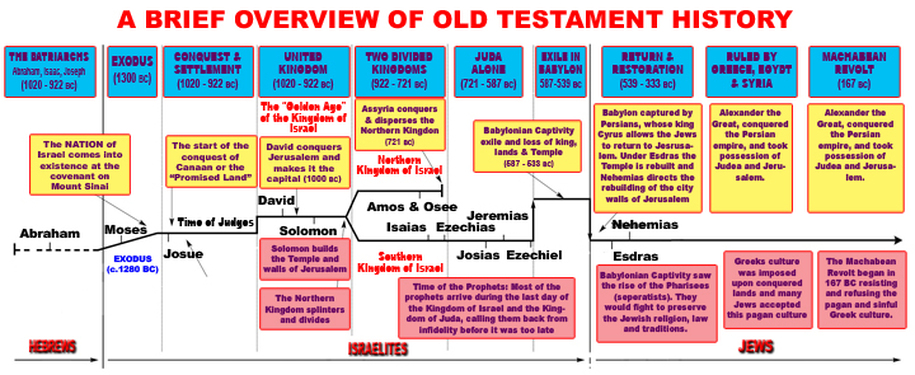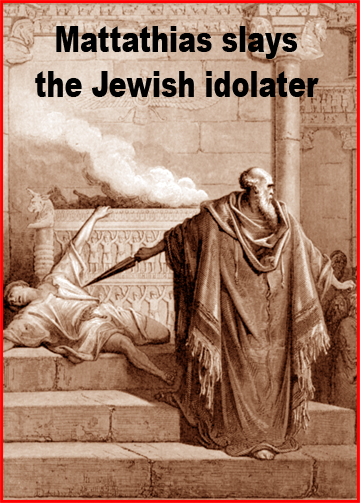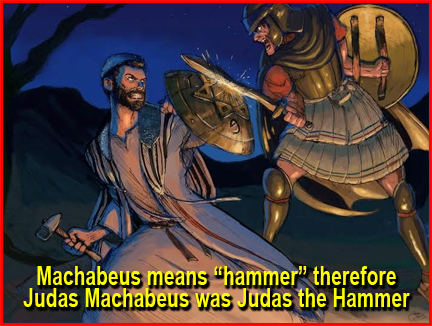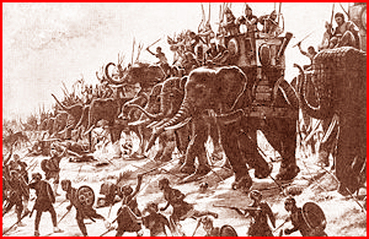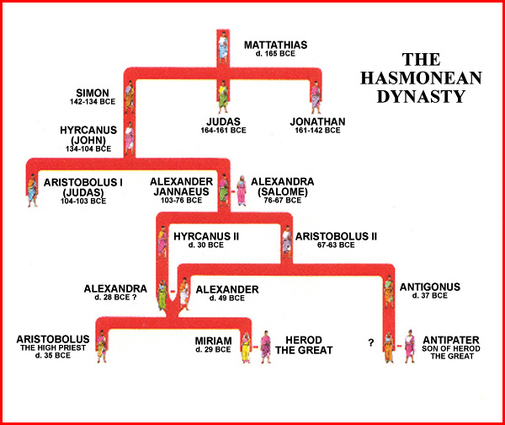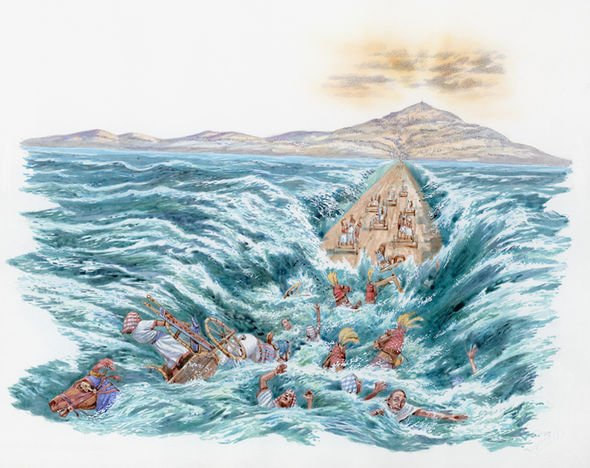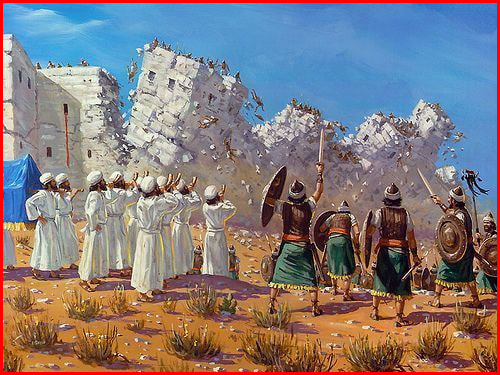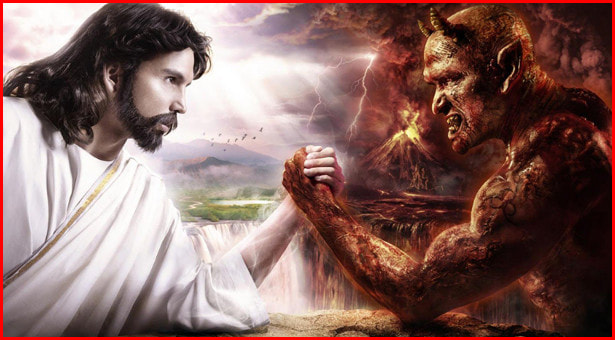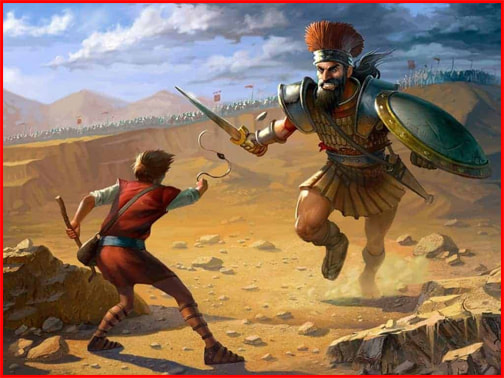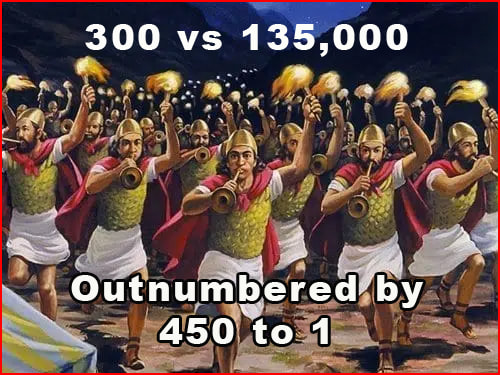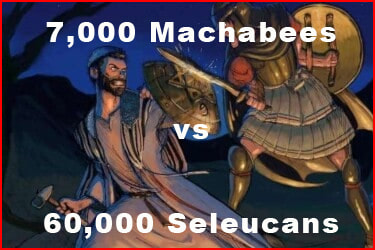| Devotion to Our Lady |
|
- Homepage
-
Daily Thoughts
- 2023 October Daily Thoughts
- Daily Thoughts Lent 2020
- Daily Thoughts for Advent 2019
- Daily Thoughts for October 2019
- Daily Thoughts for September 2019
- Daily Thoughts for August 2019
- Daily Thoughts for July
- Daily Thoughts for June
- Daily Thoughts for Easter 2019
- Daily Thoughts for Lent 2019
- Daily Thoughts for Christmas
- Daily Thoughts Easter 2022
- Sacred Heart
- Holy Ghost
-
Spiritual Life
- Holy Mass Explained
- First Friday Devotions
- First Saturday Devotions
- The Mercy of God
- Vocations
- The Path Everyone Must Walk >
- Gift of Failure
- Halloween or Hell-O-Ween?
- Ignatian Spiritual Exercises >
- Meditation is Soul-Saving
- Spiritual Communion
- Miraculous Medal
- Enrollment in Miraculous Medal
- St. Benedict Medal
- Holy Water
- Advice on Prayer
- Your Daily Mary
-
Prayers
- September Devotions
- Seven Sorrows of Our Lady
-
Novenas
>
- NV-Help of Christians
- NV-Nativity of Our Lady
- NV-Seven Sorrows
- NV- Sorrowful Heart
- NV-Pope St Pius X
- NV-La Salette
- NV-St Michael Archangel
- NV-Immaculate Heart
- NV-Assumption
- NV-Novena for Fathers
- NV-Novena for Your Mother
- NV-St Raphael Archangel
- NV-Souls in Purgatory
- NV-All Saints Day
- NV-Christ the King
- NV-Divine Motherhood
- NV-Guardian Angels
- NV-Rosary
- NV-Mirac Med
- NV- Imm Conc
- NV - Guadalupe
- NV - Nativity of Jesus
- NV-Epiphany
- NV-OL Good Success
- NV-Lourdes
- NV-St Patrick
- NV-St Joseph
- NV-Annunciation
- NV-St Louis de Montfort
- NV-OL Good Counsel
- NV-Last Supper
- NV-Passion
- NV-Pentecost
- NV-Ascension
- NV-Sacred Heart
- NV-Sacred Heart & Perpetual Help
- NV-Corpus Christi
- NV-OL of Perpetual Help
- NV-Queenship BVM
- NV-OL of Mount Carmel
- NV-St Mary Magdalen
- NV- Im Hrt
- August Devotions to IHM
- Immaculate Heart of Mary
- Litany of Dependence
- Prayers to St Mary Magdalen
- Prayers in Times of Sickness Disease & Danger
- Holy Souls in Purgatory
- Meditations on the Litany of Our Lady
- Special Feast Days
- Prayers to Mary (Mon-Sun)
- Litanies to Our Lady >
- Various & Special Needs
- Our Lady of the Rosary
- Our Lady of Mt. Carmel
- Our Lady of Perpetual Help
- Our Lady of Guadalupe
- Other titles of Our Lady
-
Rosary
- Downloads
- Consecration
- Easter Season
-
Holy Week
- Last Seven Words of Jesus >
- Characters of Passion >
- The Last Days of Christ
- Before Palm Sunday
- Palm Sunday
- Monday in Holy Week
- Tuesday in Holy Week
- Wednesday in Holy Week
- Holy Thursday (Last Supper)
- Holy Thursday (Agony & Arrest)
- Night Vigil with Christ
- Good Friday (Pilate & Herod)
- Good Friday (Way of Cross & Crucifixion)
- Saturday in Holy Week
-
Lent
- Ideas for Lent
- Daily Lenten Planner
- Daily Lenten Liturgy
- From Cold to Hot
- Lent with Aquinas
- Lent with Dom Gueranger
- Virtues for Lent
- History of Penance
- How Expensive is Sin?
- Confession of Sins
- Letter to Friends of the Cross
- Sermons for Lent
- Stations of the Cross >
- Lenten Prayers
- 7 Penitential Psalms
- Lenten Psalms SUN
- Lenten Psalms MON
- Lenten Psalms TUE
- Lenten Psalms WED
- Lenten Psalms THU
- Lenten Psalms FRI
- Lenten Psalms SAT
- Lenten Laughs
- Septuagesima
-
Christmas
- Epiphany Explained
- Suggestions for Christmas
- Food For Thought
- Christmas with Aquinas
- Christmas with Dom Gueranger
- Christmas Prayers
- Candles & Candlemas
- Christmas Sermons
- Christmas Prayers SUN
- Christmas Prayers MON
- Christmas Prayers TUE
- Christmas Prayers WED
- Christmas Prayers THU
- Christmas Prayers FRI
- Christmas Prayers SAT
- Twelve Days of Christmas >
-
Advent Journey
- Purgatory
- Christ the King
- Legion of Mary
- Scapular
-
Saints
-
Martyrs for the Faith
>
- Your Daily Martyr >
- All 365 Days of Martyrs
- Cristeros
- St Valentine & Valentine's Day
- Martyrs--Thomas Becket
- Martyrs--John the Apostle
- Holy Machabees
- Age of Martyrdom
- Carmelites of Compiegne
- Martyrs--Peter & Paul
- Martyrs--John the Baptist
- Martyrs--Andrew
- Martyrs--James the Great
- Martyrs--North American
- Martyrs--Seven Holy Sleepers
- Martyrs--Afra
- School of Martyrdom
- Martyrs--Christina
- Desert Saints >
- Saints for Sinners >
- Saints of Mary >
- History of All Saints Day
-
Martyrs for the Faith
>
- Precious Blood
- Synod 2023
-
Catechism
- Catechism Lesson 1
- Catechism Lesson 2
- Catechism Lesson 3
- Catechism Lesson 4
- Catechism Lesson 5
- Catechism Lesson 6
- Catechism Lesson 7
- Catechism Lesson 8
- Catechism Lesson 9
- Catechism Lesson 10
- Catechism Lesson 11
- Catechism Lesson 12
- Catechism Lesson 13
- Catechism Lesson 14
- Catechism Lesson 15
- Catechism Lesson 16
- Catechism Lesson 17
- Catechism Lesson 18
- Catechism Lesson 19
- Catechism Lesson 20
- Catechism Lesson 21
- Catechism Lesson 22
- Bible Study
-
Calendar
- Miracles
- Apparitions
- Shrines
- Prophecies
- Angels Homepage
- Hell
-
Church Crisis
- Conspiracy Theories
- Amazon Synod 2019 >
- Liberalism & Modernism
- Modernism--Encyclical Pascendi
- Modernism & Children
- Modernism--Documents
- The Francis Pages
- Church Enemies on Francis
- Francis Quotes
- Amoris Laetitia Critique
- Danger of Ignorance (Pius X)
- Restore all In Christ (Pius X)
- Catholic Action (Pius X)
- Another TITANIC Disaster?
- The "Errors of Russia"
- CRISIS PRAYERS
- Election Novena 2024
- The Anger Room
- War Zone
- Life of Mary
- Spiritual Gym
- Stupidity
- Coronavirus and Catholicism
- History & Facts
- Books
- Catholic Family
- Children
- Daily Quiz
-
Novena Church & Pope
- Day 01 Church-Pope Novena
- Day 02 Church-Pope Novena
- Day 03 Church-Pope Novena
- Day 04 Church-Pope Novena
- Day 05 Church-Pope Novena
- Day 06 Church-Pope Novena
- Day 07 Church-Pope Novena
- Day 08 Church-Pope Novena
- Day 09 Church-Pope Novena
- Day 10 Church-Pope Novena
- Day 11 Church-Pope Novena
- Day 12 Church-Pope Novena
- Day 13 Church-Pope Novena
- Day 14 Church-Pope Novena
- Day 15 Church-Pope Novena
- Day 16 Church-Pope Novena
- Day 17 Church-Pope Novena
- Day 18 Church-Pope Novena
- Day 19 Church-Pope Novena
- Day 20 Church-Pope Novena
- Day 21 Church-Pope Novena
- Day 22 Church-Pope Novena
- Day 23 Church-Pope Novena
- Day 24 Church-Pope Novena
- Day 25 Church-Pope Novena
- Day 26 Church-Pope Novena
- Day 27 Church-Pope Novena
- Day 28 Church-Pope Novena
- Day 29 Church-Pope Novena
- Day 30 Church-Pope Novena
- Day 31 Church-Pope Novena
- Day 32 Church-Pope Novena
- Day 33 Church-Pope Novena
- Day 34 Church-Pope Novena
- Day 35 Church-Pope Novena
- Day 36 Church-Pope Novena
- Day 37 Church-Pope Novena
- Day 38 Church-Pope Novena
- Day 39 Church-Pope Novena
- Day 40 Church-Pope Novena
- Day 41 Church-Pope Novena
- Day 42 Church-Pope Novena
- Day 43 Church-Pope Novena
- Day 44 Church-Pope Novena
- Day 45 Church-Pope Novena
- Day 46 Church-Pope Novena
- Day 47 Church-Pope Novena
- Day 48 Church-Pope Novena
- Day 49 Church-Pope Novena
- Day 50 Church-Pope Novena
- Day 51 Church-Pope Novena
- Day 52 Church-Pope Novena
- Day 53 Church-Pope Novena
- Day 54 Church-Pope Novena
- Penance Novena
- Daily WeAtheR Forecast
The Machabean resistance to pagan Greek inculturation is something that teach us a lesson for our own day. For in our day and age, we are being watered-down and destroyed by a neo-pagan culture that is leading to "One World Government, just as the Greek Emperor, Alexander the Great, was aiming at a "One World Government" in his own day. But before we zoom in to the period itself, it is good to have a "bird's eye view" of the "big picture" in which this valiant resistance to worldliness took place. The chart below will serve as that big picture view. If you find it hard to read, a download is available as a PDF file (11 x 19 inches).
Or you can hold down you "Control" *(CTRL) key while at the same time pressing your "plus sign" (+) key as many times as necessary to enlarge the text. To return to normal screen size, press the "Control" *(CTRL) key and at the same time press the "zero" (0) key.
Or you can hold down you "Control" *(CTRL) key while at the same time pressing your "plus sign" (+) key as many times as necessary to enlarge the text. To return to normal screen size, press the "Control" *(CTRL) key and at the same time press the "zero" (0) key.
| old_testament_history_overview_01.pdf | |
| File Size: | 517 kb |
| File Type: | |
Parts 1
Scroll down for Part 2
BRING ON THE BIG-MACS!
BRING ON THE MACHABEES!
Scroll down for Part 2
BRING ON THE BIG-MACS!
BRING ON THE MACHABEES!
|
Mac Who?
We all know about McDonalds, McNuggets and Big Macs—but who are or what on Earth are Machabees? Is that a new item on the menu? Sadly, for most people today, that would be the reasoning! Our minds have been systematically dumbed-down by modern education systems and the entertainment industry, with the result that our knowledge base is sketchy and superficial, and our grasp of history barely remembers a loved one’s birthday, never mind key historical dates, events and their causes. The history we do know is often “revisionist history’ or twisted history, or what we could call a “Hollywoodized history.” Yet, as the famous axiom goes: “Those who do not know their history, will learn by repeating it!” There is so much from the past that serves as a lesson for today. If we have little knowledge of the past, then we will fall for the tricks and deceptions of bygone years and make the same mistakes today. In this article we will simply look at the history. In the next article we will draw the parallels with our day and make some applications on how we can and must act in our own predicament. So let us go back in time in order to be ready for the future. We will begin with end of Alexander the Great’s empire—all good things come to an end! The Jews are Ruled by the Greeks The Jews lived under the Persian supremacy in peace and quiet. This lasted till 329 BC. In that year, Alexander the Great, who had conquered the Persian empire, took possession of Judaea and Jerusalem; but he was favorable to the Jews and allowed them to practice their religion, for which he had a great respect. It had been Alexander’s dream to found a world kingdom which would be held together not only through the person and power of the ruler, but through unity of language, customs, and mental outlook. He endeavored to effect a marriage between Greek and Oriental culture, with the Greek element dominant. In the wake of the army came Macedonian and Greek colonists who settled in the cities, and new cities were founded peopled by Greeks. Everywhere throughout the empire the colonists spoke Greek. These colonists spread the Greek pagan ideas and customs. In the culture which was developing quickly, Greek wisdom and knowledge formed the basis. The Greeks pointed with pride to their gymnasia, baths, theaters, temples. The Jews could not isolate themselves from this new movement. When Alexander died (323 BC), his four principal generals divided his vast empire; and the Jews lived for a hundred years under the Egyptian rule, which was in no way oppressive. Change of Boss But in the year 200 BC Judaea fell under the domination of the kings of Syria—known as the Seleucids or Syrian Greeks, under whom the Jews experienced the pressure of Greek civilization in a much stronger degree. The influential circles among the Jews inclined toward the Seleucids and manifested a willingness to cooperate with their plans—which shows how far Hellenization (i.e., being overcome by Greek culture) had already progressed among them. Thus arose two opposing groups: the pious Jews who adhered to the morality and religion of their fathers, and the liberals who befriended the Greeks and were lukewarm in matters of religion. Pagan Seeds Sprout Gradually the foreign seed of paganism began to sprout even in the theocracy of Judaea. The influence of the Greek attitude of mind, attitudes and customs, which had been infiltrating Judaea since Alexander’s victorious campaigns, became more and more apparent. Soon the educated Jew understood Greek, and for merchants the knowledge of this language was indispensable. Some too were inclined to accept Greek culture out of political considerations. Some Jews Grecized (changed into Greek) their names, e.g., Josue and Jesus became Jason. Jason the Compromiser The leader of this compromising party was Josue, better known by his Greek name, Jason, the unworthy brother of the worthy high-priest, Onias III. Soon after Antiochus IV (215-164 BC) had assumed power in 175 BC, Jason, the unworthy brother of the worthy High Priest Onias, offered the king a large sum of money in return for the office of High Priest, which meant the removal of his brother Onias, and requested permission to build a gymnasium in Jerusalem in order to rear youths in Hellenistic fashion. Antiochus was only too happy to agree to a proposal by which the High Priest would work for the Hellenization of the Jews and, moreover, pay money to do it. How popular among the priests Jason’s ideas were soon became manifest when many neglected the religious services in order to attend the games. Corruption Begins As soon as he was installed as High Priest (174 BC), he began the work of Hellenizing and carried it on with considerable success. A gymnasium was built below the Acra (citadel), in close proximity to the Temple, where the youths of Jerusalem were taught Greek sports. Even priests became addicted to the games and neglected the altar for the gymnasium. Many, ashamed of what a true Jew gloried in, had the marks of circumcision removed, so as to avoid being recognized as Jews when naked in the baths, or the gymnasium. Jason himself went so far as to send money for the games celebrated at Tyre in honor of Hercules (1 Machabees 1:11-16; 2 Machabees 4:7-20). After three years, Jason was forced to yield the pontificate to Menelaus, his agent with the king in money matters, who secured the office by outbidding his employer, Jason. To satisfy his obligations to the king, the man Menelaus, who was a Jew only in name, appropriated sacred vessels, and when the former high-priest Onias protested against the sacrilege he procured his assassination. When “Antiochus surnamed Epiphanes ... reigned in the hundred and thirty and seventh year of the kingdom of the Greeks” (1 Machabees 1:10) and “Jason ... labored underhand to be High Priest ... he forthwith brought his own nation to the Greek fashion. ... For he built gladly a place of exercise under the tower itself, and brought the chief young men under his subjection. ... Now such was the height of Greek fashions, and increase of heathenish manners through the exceeding profaneness of Jason, that ungodly wretch and no High Priest; that the priests had no courage to serve any more at the altar, but despising the temple, and neglecting the sacrifices, hastened to be partakers of the unlawful allowance in the place of exercise, after the game of Discus called them forth” (2 Machabees 4:7-14). Why then so much excitement over a sports ground? Gymnastics in Jerusalem—discus throwers and sprinters in the Holy City—it sounds perhaps unusually progressive, but why should Yahweh be displeased at it? How could a High Priest be denounced as ungodly on that account? The Naked Truth Between the method of playing games today and playing games in those days there is a slight but very essential difference. It has nothing to do with the exercises themselves, which have remained practically the same for more than 2,000 years. The difference lies in dress. True to the Olympic pattern, games were played completely naked. The body could be “covered” only with a thin coat of oil. Likewise, the baths promoted nudity. Nakedness itself must have been regarded by all orthodox believers in Judaea as a challenge. They firmly believed in the corruption of human nature from youth onward and in the sinfulness of the body. It is impossible that athletics in full view of the Temple, only a few steps from the Holy of Holies, should not have been regarded as an outrageous insult or that it should not have given rise to vigorous opposition. According to contemporary sources the High Priest, Jason, had located the stadium in the heart of Jerusalem, in the valley which bordered the Temple hill. But that was not the end of the scandal. It was not long before Jewish athletes were guilty of a serious crime against the Law—they “made themselves uncircumcised” (1 Machabees 1:15). The Greek conception of beauty and the circumcision of Jewish athletes displayed in full view of the public eye were two irreconcilable things. Jewish teams—not in Jerusalem among their own people naturally—met with scorn and ridicule, and even aversion, as soon as they appeared in contests away from home. The Bible speaks of “the game that ... every fifth year was kept at Tyrus” (2 Machabees 4:18). Many of them must have suffered so much from the disgust that they encountered that they sought a remedy. Other translations refer to a surgical operation which restored the natural state. Nakedness had come for a second time to be Judaea’s great temptation. Nakedness had been the outstanding characteristic of the fertility goddesses of Canaan; nakedness was now paraded by the athletes in the sports grounds that had sprung up all over the country. In those days a much deeper significance was attached to athletics than to sport in the modern sense. They were religious exercises, dedicated to the foreign Greek gods Zeus and Apollo. Persecutions Begin Under the Syrian Greeks (Seleucids) The earlier Seleucid (Syrian Greek) kings, Antiochus III and Seleucus IV, were somewhat diplomatic with the Jews, but the most terrible trial and a terrible persecution which the Jews had to undergo was that which came upon them at the time when they were made subject to the proud and cruel Antiochus IV, King of Syria. He was one of the successors of Antiochus the Great, and he was proudly nicknamed “Epiphanes” (meaning “god manifest”). |
First Attack and Capture of Jerusalem
While waging war against Egypt, Antiochus IV Epiphanes stormed Jerusalem in 169 BC with a large army. He killed 40,000 inhabitants, plundered and desecrated the Temple. He proclaimed Greek paganism to be the religion of the state. Upon leaving, he took many of the women and children captive, or sold them as slaves. All the Jews were forbidden, under pain of death, to practice any religion but that of the state. They did not dare to circumcise their male children, or observe their Sabbaths and festivals, or offer sacrifice to the true God. The king ordered the Holy Books to be torn and burnt; he profaned the Temple, and forbade the observance of the divine laws under the penalty of death. Antiochus was determined to break down the loyalty of the Jews to their nation and to their religion. Second Attack and Capture of Jerusalem Two years after his first attack upon the city, he returned and again took possession of it in 168 BC. He destroyed many houses and the city’s walls. He made. Antiochus forbade the Jews to offer sacrifices to their God. He tried to force them to worship the gods of the Greeks. Pagans went to the Temple to adore their gods. In all the cities of Judea, pagan altars were set up and pagan worship was commanded. Great numbers of the Jews fled from the cities. Others were sold into slavery. Strangers from other countries were brought into Jerusalem to populate it and take the place of the scattered Jews. However, the treasures of the Temple were not enough for the Seleucid king. In 168 B.C. Antiochus undertook a second campaign against Egypt, but was stopped in his victorious progress by an ultimatum of the Roman Senate. He vented his rage on the Jews, and began a war of extermination against their religion. Apollonius his chief tax collector, was sent with an armed force to Jerusalem, under orders to Hellenize Jerusalem to extirpate the native population and to people the city with strangers. The unsuspecting inhabitants of Jerusalem were attacked on the Sabbath, when they would offer no defense; the men were slaughtered, the women and children sold into slavery. The city itself was laid waste and its walls demolished. A fort was built on Mount Sion for his occupying Syrian troops. Abolishing the Jewish Religion An order was next issued abolishing Jewish worship and forbidding the observance of Jewish rites under pain of death. The Temple of the true God was made the temple of the pagan gods. A heathen altar was built on the altar of holocausts, where sacrifices were offered to Olympic Jupiter (Zeus), and the Temple was profaned by pagan orgies. Altars were also set up throughout the country, at which the Jews were to sacrifice to the king’s pagan gods. This man, “when he had taken the spoils of the city, (he) set it on fire, and pulled down the houses and walls thereof on every side. But the women and children took they captive, and possessed the cattle” (1 Machabees 1:29-32; 2 Machabees. 5:24 ff). You Think You’ve Won, Eh? But, contrary to what Antiochus wanted, all these persecutions made the Jews strong. Though many conformed to these orders, the majority remained faithful and, rather than violate the law of their fathers, they became more devoted to the customs of Judea and to the worship of the true God. Their heroism was great, and a number of them laid down their lives and suffered martyrdom. The Second Book of Machabees narrates at length the heroic death of an old man, named Eleazar, and of seven brothers with their mother. (1 Machabees 1:30-67; 2 Machabees 5:24-7:41). (click here) The Martyrdom of Eleazar Eleazar, was an old man, ninety-nine years of age, one of the important men of Judea who was renowned as a doctor of the law. He was brought before the governor of Antiochus. He was accused of illegally keeping the laws of the Jews. The governor commanded him to eat the meat of a pig. Of course, as we know, such meat was forbidden to the Jews by the Law of Moses. Unhappily, many of the Jews, yielding to a guilty fear, obeyed the king’s order; but many more refused to comply with the impious mandate, and chose to die rather than violate the holy precept of God. When Eleazar refused to eat swine’s flesh, they opened his mouth by force to compel him to eat. But he still refused, and declared that he would undergo any torment that might be inflicted on him, rather than stain his soul with sin, by a violation of the commandment of God. Then some of those who stood by, pitying the good old man, advised him to eat some other meat which was not forbidden to the Jews, but to pretend that it was pig-meat that he was eating, and so bring about a “win-win” situation by feigning compliance with the king’s command. Eleazar refused to follow their advice and would not use deceit even to save his life. He told the people that men can deceive their kings, but they cannot deceive God. He replied: “It does not become our age to feign and fake.” He then explained to these false friends that even if he made a mere pretense of complying with the king’s orders in this matter (by pretending to eat the meat without actually eating it), the young men of his nation might be tempted to follow his example, saying: ‘‘The aged Eleazar has become a pagan, why may not we do the same?” Moreover, he exclaimed: “Though for the present time I should be delivered from the punishment of men, yet should I not escape the hand of the Almighty, neither alive nor dead.” Having thus spoken, the holy old man was dragged to the place of execution, where he suffered a glorious death. In the midst of his torments he cried out: “Lord, Thou knowest I suffer grievous pains, but I am not afraid to suffer these things, because I fear Thee.” For his faith and obedience to God, he was beaten to death. Martyrdom of the Seven Brothers Another example of steadfast faith in God during these troubled times was given by seven young men and their widowed mother. These seven brothers, together with their mother, were accused of disobedience to the king’s law. They were ordered to eat the meat of a pig and they refused. They were then told that they would be beaten with whips and scourges, but the eldest of them spoke for the others and told the persecutors that they were ready to die rather than to disobey the laws of God. After this confession of faith in God, each brother in turn was grilled alive over a fire, even to the youngest who was also not afraid to die for his faith. Their mother stood by and watched each of her sons in their sufferings, encouraging them to be brave and not to give in to the king’s demands. Then she, too, was put to death. Events That Spark the Revolt of Mathathias The rising under Mathathias was caused by these impious attempts of Antiochus IV to force Greek paganism on his Jewish subjects and to eradicate their religion—the climax of a movement to Hellenize the Jews (i.e., absorbing them into the pagan Greek culture), begun with the king’s approval by a political party among the Jewish aristocracy, who were in favor of breaking down the wall of separation between Jew and Gentile and of adopting Greek customs. The persecution proved a blessing in disguise; it exasperated even the moderate Hellenists, and prepared a rebellion which freed the country from the corrupting influences of the extreme Hellenist party. The worship of Olympian Jupiter (Zeus) was set up in the Temple of Jerusalem. For taking part in any Jewish religious ceremonies—the traditional sacrifices, the Sabbath, or circumcision—the penalty was death. The holy scriptures were destroyed. This was the first thoroughgoing religious persecution in history. There were of course even in those days weak characters who chose the way of least resistance. Nevertheless many “... chose rather to die, that they might not be defiled” (1 Machabees 1:63). But it was the resolute and fervent faith of an old man that first kindled the torch of revolt in the land. Mathathias & Sons Among the families that fled from Jerusalem during the days of the persecution of Antiochus was that of Mathathias. Modin was the name of a small village twenty miles from Jerusalem, on the western fringe of the highlands of Judaea. Here lived the priest Mattathias with his five sons: John, Simon, Judas Machabeus, Eleazar, and Jonathan. Mathathias, was a priest of the order of Joarib (cf. 1 Paralipomenon 24:7), who, to avoid the persecution, had fled from Jerusalem to Modin, near Lydda. Resistance Sparked When Antiochus’ officers came to Modin to force the inhabitants to “forsake the law,” to offer sacrifices and to burn incense, Mattathias steadfastly refused to obey the order—even when solicited by a royal officer to sacrifice to the gods, and promised rich rewards and the king’s favor, he firmly refused. When a fellow Jew approached the pagan altar to sacrifice, he killed him together with the king’s officer, and destroyed the altar. For he could not “forbear to show his anger according to judgement: wherefore he ran and slew him upon the altar. Also the king’s commissioner, who compelled men to sacrifice, he killed at that time, and the altar he pulled down” (1 Machabees. 2:1-25). This act was the signal for open resistance, for a life-and-death struggle for preservation of religion—the Wars of the Machabees. He and his sons then fled to the mountains, where they were followed by many of those who remained attached to their religion. |
Part 2
THE MACHABEAN BATTLES BEGIN
THE MACHABEAN BATTLES BEGIN
|
The Hasmonean dynasty was the ruling dynasty of Judea and
surrounding regions during classical antiquity. It evolved from the Machabees. The
dynasty was established under the leadership of Simon Machabeus, two decades
after his brother Judas Machabeus defeated the Seleucid army during the Machabean
Revolt. The family name of the Hasmonean dynasty originates with the ancestor
of the Machabees, whose name in Greek was “Asamoneus” or “Asmoneus” and who is
said to have been the great-grandfather of Mattathias, but about whom nothing
more is known.
Between 140 and c. 116 BC the dynasty ruled semi-autonomously from the Seleucids in the region of Judea. From 110 BE, with the Seleucid empire disintegrating, the dynasty became fully independent, expanded into the neighboring regions of Samaria, Galilee, Iturea, Perea, and Idumea. Some modern scholars refer to this period as an independent kingdom of Israel. In 63 BC, the kingdom was conquered by the Roman Republic, broken up and set up as a Roman client state. The dynasty had survived for 103 years before yielding to the Herodian dynasty in 37 BC. Even then, Herod the Great tried to bolster the legitimacy of his reign by marrying a Hasmonean princess, Mariamne, and planning to drown the last male Hasmonean heir at his Jericho palace. Guerilla Warfare
In their secret haunts in the mountains and in caves, they gathered around them a band of those who shared their beliefs, and this small army of fugitives harassed Antiochus and his army, waging bitter guerrilla warfare against the occupying Syrian Greek power. They attacked various towns and drove out the forces of Antiochus. It was in the highlands of Judaea that the rebels achieved their first successes. Their achievements were indeed remarkable. This small untrained and badly equipped band, mastered the well-drilled and numerically superior occupation troops. Three towns were re-captured. The Seleucids had to retreat until reinforcements arrived from Antioch. Gradually, Mathathias and his followers overran the country, destroying heathen altars, circumcising children, driving off aliens and apostate Jews, and gathering in new recruits. After a year of this kind of warfare, Mathathias died. In 166 BC. At his death he exhorted his sons to carry on the fight for their religion, and he gave the command of his army to his son, Judas, with Simon as adviser. Judas was called Machabeus, which means hammer in Hebrew, for Judas was a brilliant general who “hammered” at the armies of Antiochus. Mathathias was buried at Modin amid great lamentations (1 Machabees, ch. 2). The Resistance Continues With Judas Machabeus Judas Machabeus continued the warfare begun by his father. In the beginning the Syrians expected the troops stationed in Palestine to restore peace; but Apollonius and Seron, the Syrian leaders, were defeated with great loss north of Jerusalem. Then Antiochus IV, who was in the midst of preparations for an expedition against the Parthians, commissioned Lysias to govern the western half of the kingdom during his absence, and to break the Jewish rebellion, and also rear his son, Antiochus. Early in the summer of 165 Lysias sent generals Nicanor and Gorgias with a strong army southward. Gorgias planned a surprise attack upon the Jewish camp with part of his army, but found the site deserted. Meanwhile Judas was routing the forces of Nicanor. Nicanor fled and Gorgias returned to Syria in failure. In the following year, 164, Lysias himself was defeated at Bethsura, south of Jerusalem. Judas then campaigned against Timotheus and Bacchides in Ammonite territory with notable success. Though his army was small, he had conquered the generals of Antiochus in four battles. After the fourth victory the Jews enjoyed peace for a while. Liberation of Jerusalem Judas Machabeus liberated Jerusalem in 164 BC. They found the Temple desecrated, the altar violated, the doors burned; in the forecourts weeds were growing, and the chambers (of the Temple) were in a dilapidated condition. They purified the Temple, which had been used for heathen purposes. Immediately the altar to Zeus was removed and a new one constructed. Sacred vessels were supplied and priests faithful to the Law were installed. Then sacrifices and worship to God were offered as in former times. On the 25th of Chislev (December 164 BC), sacrifices were again offered regularly after a three year interval. In memory of the occasion the feast of the Dedication of the Temple or Hanukkah was added to the calendar. Then Judas fortified the temple hill it a stronghold. (1 Machabees 4:36 ff). In the course of military expeditions, which took him more and more across the frontiers of the province of Judaea, Judas Machabeus entered Galilee and Transjordan and wherever else there were Israelites who remained true to the old faith. On the way to Idumaea, the old town of Hebron, in southern Judaea, was besieged and destroyed. A Sudden Providential Death Antiochus was in Syria when he heard that his army had been defeated by Judas Machabeus and Jerusalem retaken. He himself had just been defeated in a battle with an enemy king. He determined to take revenge on the Jews and so started out for Jerusalem. On the way he contracted a disease. He was in great pain, yet he tried to go on. He continued his journey until one day he fell from his chariot and, due to the injuries sustained, he could go no farther. He died a miserable death in a strange country. When at the point of death he designated his youthful friend Philip as regent of the whole kingdom and as guardian of his son. Refusing to honor this arrangement, Lysias immediately installed Antiochus IV’s son, also named Antiochus, upon the throne and gave him the name Eupator (163-162 ). He became thus Antiochus V Eupator. Trusting in God in the Battle Pays Off Antiochus V sent his ablest generals, with mighty armies, to take Judea and Jerusalem again. Judas Machabeus and his small army, seeing the hosts that were marching against them, had recourse to God in humble prayer. Then they took up their arms and advanced to meet the enemy, trusting in God alone. In the midst of the combat five horsemen, in shining armor, were seen by the enemy in the air above, fighting for the Jews. Two of these heavenly warriors were with Judas Machabeus, as it were shielding him from danger, while the other three cast darts from on high against the Syrian host. Seeing this strange sight the enemy were seized with terror, and fled in confusion, leaving thirty thousand of their number dead on the field. Thus favored by divine assistance, Judas Machabeus defeated the Syrians in many other bloody engagements. But it happened in one of these that some of the Jews were slain, and on the following day, when Judas and his soldiers came to bury them, they found under their tunics certain heathen charms, or amulets, which it was not allowable even to touch. |
Part 3
WHEN GOD FIGHTS FOR YOU, YOU CANNOT LOSE!
WHEN GOD FIGHTS FOR YOU, YOU CANNOT LOSE!
|
|
You could say―with tongue in cheek―God loves a good fight. Holy Scripture is very clear on the power of God’s involvement in battles. Both the Old and New Testaments give clear accounts and affirmations that when God “comes aboard” for a good and just cause―or if God Himself commands a fight or battle to take place―then there will be only one loser, and that loser won’t be God and His side!
God's Fighting Talk ● “The Lord God, Who is your Leader, Himself will fight for you, as He did in Egypt in the sight of all!” (Deuteronomy 1:30). ● “Fear them not―for the Lord your God will fight for you!” (Deuteronomy 3:22). ● “The Lord your God is in the midst of you, and will fight for you against your enemies, to deliver you from danger” (Deuteronomy 20:4). ● “God is the leader in our army! … Fight not against the Lord the God, for it is not good for you!” (2 Paralipomenon 13:12). ● “It shall not be you that shall fight, but only stand with confidence, and you shall see the help of the Lord over you! Fear ye not, nor be you dismayed! Tomorrow you shall go out against them, and the Lord will be with you!” (2 Paralipomenon 20:17). ● “No man shall be able to resist you! As I have been with Moses, so will I be with thee! I will not leave thee, nor forsake thee! Take courage, and be strong!” (Josue 1:5-6). ● “Fear ye not and be not dismayed at this multitude―for the battle is not yours, but God’s! Tomorrow you shall go down against them … It shall not be you that shall fight, but only stand with confidence, and you shall see the help of the Lord over you! Fear ye not nor be you dismayed! Tomorrow you shall go out against them and the Lord will be with you!” (2 Paralipomenon 20:15-17). ● “Fear not, for I am with thee! Turn not aside, for I am thy God! I have strengthened thee, and have helped thee, and My right hand hath upheld thee. Behold all that fight against thee shall be confounded and ashamed, they shall be as nothing, and the men shall perish that strive against thee!” (Isaias 41:10-11). ● “When thou shalt pass through the waters, I will be with thee, and the rivers shall not cover thee; when thou shalt walk in the fire, thou shalt not be burnt, and the flames shall not burn in thee! For I am the Lord thy God” (Isaias 43:2-3). ● “No weapon that is formed against thee shall prosper!” (Isaias 54:17). ● “If thou think that battles consist in the strength of the army, then God will allow thee to be overcome by the enemies―for it belongs to God both to help and to put to flight” (2 Paralipomenon 25:8). ● “For they got not the possession of the land by their own sword; neither did their own arm save them―but by Thy right hand and Thy arm!” (Psalm 43:4). ● “The Lord shall go forth as a mighty man―as a man of war shall He stir up zeal! He shall shout and cry! He shall prevail against His enemies!” (Isaias 42:13). ● “The Lord thy God Himself will pass over before thee―a devouring and consuming fire―to destroy and extirpate and bring them to nothing!” (Deuteronomy 9:3). ● “God is faithful, who will strengthen and keep you from evil” (2 Thessalonians 3:3). ● “God will fight for us and let us do the work!” (2 Esdras 4:20-21). ● “If God be for us, who is against us?” (Romans 8:31). ● “For the weapons of our warfare are not carnal, but mighty to God unto the pulling down of fortifications, destroying plans!” (2 Corinthians 10:4). ● “For the weapons of our warfare are not carnal, but mighty to God unto the pulling down of fortifications, destroying “The Lord is my helper―I will not fear what man can do unto me! The Lord is my helper and I will look down over my enemies!” (Psalm 117:6-7). ● “O Lord, them that wrong me! Overthrow them that fight against me! Take hold of arms and shield, and rise up to help me! Bring out the sword and shut up the way against them that persecute me! Say to my soul: ‘I am thy salvation’! Let them be confounded and ashamed that seek after my soul. Let them be turned back and be confounded that plot against me!” (Psalm 34:1-4). ● “Thou hast stretched forth Thy hand against the wrath of my enemies; and Thy right hand hath saved me!” (Psalm 137:7). Fight for the Lord, Fight with the Lord Make no mistake about it―you are called to the fight! It does not matter whether you are young or old―a child of 7 or an old-age pensioner of 77. Man or woman; healthy or sick; rich or poor; educated or uneducated; full of courage or cowardice; full of zeal or full of excuse; whether you want to or not―you are called to the fight! “And Moses answered them: ‘What! Shall your brethren go to fight, and will you just sit here?’” (Numbers 32:6). “The life of man upon Earth is a warfare!” (Job 7:1). “Fight the good fight of Faith! Lay hold on eternal life, whereunto thou art called!” (1 Timothy 6:12). “Labor as a good soldier of Christ Jesus. No man, being a soldier to God, entangles himself with secular businesses; that he may please Him to Whom he hath engaged himself!” ― namely God (2 Timothy 2:3-4). “The Kingdom of Heaven suffereth violence, and the violent bear it away” (Matthew 11:12). “You have not yet resisted unto blood, striving against sin” ― and all the other true enemies of God (Hebrews 12:4). “Be of good courage, and let us fight for the city of our God!” (2 Kings 10:12). “For your adversary the devil, as a roaring lion, goeth about seeking whom he may devour. Whom resist ye, strong in Faith!” (1 Peter 5:8-9). “Put you on the armor of God, so that you may be able to stand against the deceits of the devil! For our wrestling is not against flesh and blood; but against principalities and powers, against the rulers of the world of this darkness, against the spirits of wickedness in the high places. Therefore, take unto you the armor of God, that you may be able to resist in the evil day, and to stand in all things perfect! Therefore, stand, having your loins girt about with truth; and having on the breastplate of justice; and your feet shod with the Gospel of peace. In all things taking the shield of Faith, wherewith you may be able to extinguish all the fiery darts of the most wicked one. And take unto you the helmet of salvation, and the sword of the Spirit―which is the word of God. By all prayer and supplication praying at all times in the spirit; and in the same watching with all instance and supplication!” (Ephesians 6:11-18). God Saves the Israelites from the Egyptians at the Red Sea “Pharao, king of Egypt, pursued the children of Israel with all of Pharao’s horse and chariots, and the whole army. They found them encamped at the side of sea. When Pharao drew near, the children of Israel, lifting up their eyes, saw the Egyptians behind them―and they feared exceedingly, and cried to the Lord. And they said to Moses: ‘Perhaps there were no graves in Egypt, therefore thou hast brought us to die in the wilderness! Why wouldst thou do this―to lead us out of Egypt? Is not this the word that we spoke to thee in Egypt, saying: “Depart from us that we may serve the Egyptians!”? For it was much better to serve them, than to die here in the wilderness!’ And Moses said to the people: ‘Fear not! Stand and see the great wonders of the Lord which He will do this day! For the Egyptians, whom you see now, you shall see no more for ever! The Lord will fight for you, and you shall hold your peace!’” (Exodus 14:8-14). “And when Moses had stretched forth his hand over the sea, the Lord took it away by a strong and burning wind blowing all the night, and turned it into dry ground: and the water was divided. And the children of Israel went in through the midst of the sea dried up―for the water was as a wall on their right hand and on their left. And the Egyptians pursuing went in after them, and all Pharao’s horses, his chariots and horsemen through the midst of the sea. And now the morning watch was come, and behold the Lord, looking upon the Egyptian army through the pillar of fire and of the cloud, slew their host. And overthrew the wheels of the chariots, and they were carried into the deep. And the Egyptians said: ‘Let us flee from Israel―for the Lord fights for them against us!’ And the Lord said to Moses: ‘Stretch forth thy hand over the sea, so that the waters may come again upon the Egyptians, upon their chariots and horsemen!’ And when Moses had stretched forth his hand towards the sea, it returned at the first break of day to the former place―and, as the Egyptians were fleeing away, the waters came upon them, and the Lord shut them up in the middle of the waves. And the waters returned, and covered the chariots and the horsemen of all the army of Pharao, who had come into the sea after them, neither did there so much as one of them remain. But the children of Israel marched through the midst of the sea upon dry land, and the waters were to them as a wall on the right hand and on the left. And the Lord delivered Israel on that day out of the hands of the Egyptians. And they saw the Egyptians dead upon the sea shore, and the mighty hand that the Lord had used against them; and the people feared the Lord, and they believed the Lord, and Moses His servant” (Exodus 14:21-31). |
Web Hosting by Just Host

